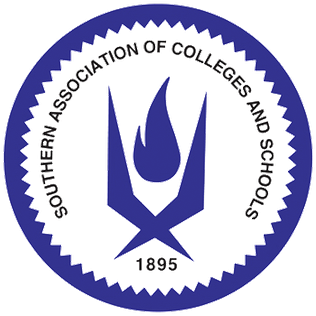Related Research Articles
An academic degree is a qualification awarded to students upon successful completion of a course of study in higher education, usually at a college or university. These institutions commonly offer degrees at various levels, usually including bachelor's, master's and doctorates, often alongside other academic certificates and professional degrees. The most common undergraduate degree is the bachelor's degree, although in some countries there are lower level higher education qualifications that are also titled degrees.
A diploma mill is a company or organization that claims to be a higher education institution but provides illegitimate academic degrees and diplomas for a fee. These degrees may claim to give credit for relevant life experience, but should not be confused with legitimate prior learning assessment programs. They may also claim to evaluate work history or require submission of a thesis or dissertation for evaluation to give an appearance of authenticity. Diploma mills are frequently supported by accreditation mills, set up for the purpose of providing an appearance of authenticity. The term may also be used pejoratively to describe an accredited institution with low academic admission standards and a low job placement rate. An individual may or may not be aware that the degree they have obtained is not wholly legitimate. In either case, legal issues can arise if the qualification is used in résumés.

The Western Association of Schools and Colleges (WASC) was an organization providing accreditation of public and private universities, colleges, secondary and elementary schools in California and Hawaii, the territories of Guam, American Samoa and Northern Marianas Islands, in addition to the Marshall Islands, Federated States of Micronesia, Palau, the Pacific Rim, Peru and East Asia.
The Bachelor of Science in Nursing also known in some countries as a Bachelor of Nursing (BN) or Bachelor of Science (BS) with a Major in Nursing is an academic degree in the science and principles of nursing, granted by an accredited tertiary education provider. The course of study is typically three or four years. The difference in degree designation may relate to the amount of basic science courses required as part of the degree, with BScN and BSN degree curriculums requiring completion of more courses on math and natural sciences that are more typical of BSc degrees and BN curriculums more focused on nursing theory, nursing process, and teaching versions of general science topics that are adapted to be more specific and relevant to nursing practice. Nursing school students are generally required to take courses in social and behavioral sciences and liberal arts, including nutrition, anatomy, chemistry, mathematics, and English. In addition to those courses, experience in physical and social sciences, communication, leadership, and critical thinking is required for a bachelor's degree. BSN programs typically last 2–4 years. Someone who holds a BSN can work in private or public medical and surgical hospitals, physician's offices, home health care services, and nursing facilities. Having a BSN can result in more opportunities and better salary than just an associate degree.

The Southern Association of Colleges and Schools (SACS) is one of the six regional accreditation organizations recognized by the United States Department of Education and the Council for Higher Education Accreditation. This agency accredits over 13,000 public and private educational institutions ranging from preschool to college level in the Southern United States. Its headquarters are in North Druid Hills, Georgia, near Decatur and in the Atlanta metropolitan area.

The University of the East, also known as UE, is a private university located in Manila, Philippines. Founded in 1946, business tycoon Lucio Tan acquired the university in 1990. UE was once labeled as the "largest university in Asia" when its enrollment in the past reached over 65,000 students.

The All India Council for Technical Education (AICTE) is the statutory body and a national-level council for technical education, under Department of Higher Education, Ministry of Human Resource Development. Established in November 1945 first as an advisory body and later on in 1987 given statutory status by an Act of Parliament, AICTE is responsible for proper planning and coordinated development of the technical education and management education system in India. The AICTE accredits postgraduate and graduate programs under specific categories at Indian institutions as per its charter.
The Council on Social Work Education (CSWE) is a nonprofit national association in the United States representing more than 2,500 individual members, as well as graduate and undergraduate programs of professional social work education. Founded in 1952, this partnership of educational and professional institutions, social welfare agencies, and private citizens is recognized by the Council for Higher Education Accreditation as the sole accrediting agency for social work education in the United States.
A Bible college, sometimes referred to as a Bible institute or theological institute, is Protestant Christian institution of higher education which prepares students for Christian ministry with theological education, Biblical studies and practical ministry training.
The Distance Education Accrediting Commission (DEAC), formerly known as the National Home Study Council and then as the Distance Education and Training Council, is a non-profit national educational accreditation agency in the United States specializing in the accreditation of distance education programs of study and institutions.

Higher education in Hong Kong means any education higher than secondary education, including professional, technical, and academic. It is the highest level of education in Hong Kong, regulated under the Hong Kong Law.

The Middle States Commission on Higher Education is a voluntary, peer-based, non-profit membership organization that performs peer evaluation and accreditation of public and private universities and colleges in the United States and foreign higher education institutions. Until federal regulations changed on July 1, 2020, it was considered one of the seven regional accreditation organizations dating back 130 years. MSCHE, which is now considered an institutional accreditor, is recognized by the United States Department of Education and the Council for Higher Education Accreditation.

St. Paul University Quezon City, also referred to as SPUQC or SPU Quezon City, is a private, sectarian and coeducational university. It was previously an all-girls' school and turned co-ed beginning school year 2006-2007.

Kristal University was an Albanian for-profit privately owned University. It was established in 2005 with decision no. 761 of the Council of Ministers of the Republic of Albania and licensed by the Ministry of Education and Science. It was closed in 2014 by the Ministry of Education for failing to comply to legal requirements.
Higher education in Ukraine operates several levels, all of which are regulated by the Ministry of Education and Science of Ukraine. In early 2016, Ukraine had 802 universities, but the Ministry intends to lower that number to 317. In 2016-17, the number of students in higher education was 1,586,700.

Amity University, Noida is a private research university located in Noida, India. It was established in 2005 by an Act of the State Legislature of Uttar Pradesh. The university is recognized by UGC under Section 22 of the UGC Act and accredited by the NAAC with grade 'A+'. Amity University offers courses on campus and through distance mode, in a number of fields of study at undergraduate, postgraduate, and doctoral levels. The university is a part of Amity Education Group and has campuses worldwide.
The higher education in the Philippines is offered through various degree programs by a wide selection of colleges and universities—also known as higher education institutions (HEIs). These are administered and regulated by the Commission on Higher Education (CHED).
Educational accreditation is a quality assurance process under which services and operations of educational institutions or programs are evaluated and verified by an external body to determine if applicable and recognized standards are met. If standards are met, accredited status is granted by the appropriate agency.
Higher education accreditation is a type of quality assurance process under which services and operations of post-secondary educational institutions or programs are evaluated by an external body to determine if applicable standards are met. If standards are met, accredited status is granted by the agency.